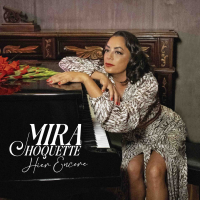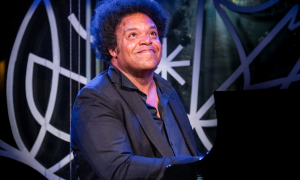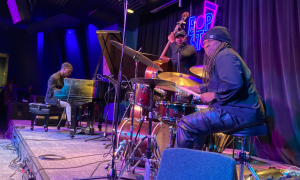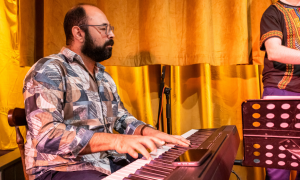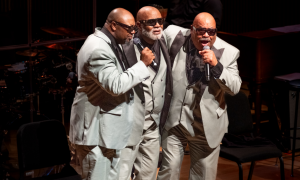Home » Jazz Articles » Live Review » Zbigniew Seifert International Jazz Violin Competition
Zbigniew Seifert International Jazz Violin Competition

I didnÀ₤t know that we have so many jazz violin players in the world. The violin is enjoying a renaissance in jazz.
—Professor Janusz Stefa´§ski
Krzysztof Penderecki European Centre for Music
Luslawice/Krakow
Poland
July 16-19, 2014
He was one of the great jazz virtuosos, right up there some would say with

Django Reinhardt
guitar1910 - 1953

Art Tatum
piano1909 - 1956

Charlie Parker
saxophone, alto1920 - 1955

John Coltrane
saxophone1926 - 1967

Zbigniew Seifert
violin1946 - 1979
Evidence of Seifert's growing legacy could be seen in the sixty three entrants from seventeen countries who applied for the 1st Zbigniew Seifert International Jazz Violin Competition. Ten finalists qualified for the semi-finals and finals which were held over three days in the Krzysztof Penderecki European Centre for Music in Luslawice, Poland.
"To be honest, there is a really huge interest," said Aneta Norek-Skrycka, President and co-founder of the Zbigniew Seifert Foundation and one of those chiefly responsible for making the 1st Zbigniew Seifert International Jazz Violin Competition a reality: "We didn't expect to have so many applications and such big interest from the media so it seems that in this we have achieved our goal. Finally in Poland we hear about Seifert."
It's strange to think that Seifert should better known abroad than in his native Poland but he conducted few interviews during his lifetime and only now—through the tireless work of the Zbigniew Seifert Foundation—are those print articles related to the violin genius being digitally archived. Thanks too, to the phenomenon of You Tube Seifert's music is more accessible than it's ever been. It's taken a few determined individuals and the arrival of the internet age to reawaken interest in Seifert.
Significantly too, Seifert's recorded legacy was relatively small and his records have long been out of print in Poland. Recently, however, there has been a spate of reissues and archival releases on CD, which is bringing Seifert's music to new generations. In 2006 Polish label Anex reissued Kilimanjaro Vol 1 and Vol 2, live sets from 1978. In 2008, Polonia Records reissued Seifert's celebrated 1978 recording Solo Violin. In 2010 another Polish label, GAD Records, released Nora, a series of radio recordings from 1969 and 1970 featuring Seifert on alto saxophone. Also in 2010, German label Promising Music issued Man of the Light, remastered from the MPS label recording.
The latter recording—originally released in 1976—is considered by All About Jazz's chief writer and Seifert fan John Kelman to be "a true desert island disc; one of the most exhilarating, important, and underexposed jazz albums ever recorded." Man of the Light featured

Joachim Kuhn
pianob.1944

Cecil McBee
bassb.1935

Billy Hart
drumsb.1940

Jasper Van't Hof
pianob.1947
Certainly it's the recording that the ten finalists who graced the inaugural competition are most familiar with. All acknowledged being inspired by Seifert and there was a sense of homecoming in their bringing Seifert's music alive once more in his native Poland.
The idea to commemorate and promote Seifert was hatched several years before, as Norek-Skrycka explained to me in the quiet of one of the many practice rooms of the Krzysztof Penderecki European Centre for Music:"I was shocked that although Seifert is such a great musician you couldn't find any information about him and you couldn't buy his CDs in the shops," said Norek-Skrycka. "It's a shame that he is better known abroad than in Poland. I started to figure out what to do to make his legacy known, because as

Tomasz Sta´§ko
trumpet1942 - 2018
Norek-Skrycka wrote a master's thesis about Seifert's music but with the ink barely dry she came to the conclusion that to truly promote the violinist beyond the relatively narrow confines of academia a more comprehensive work was required. Consequently, the fiercely determined Norek-Skrycka spent countless hours over the next four years meticulously researching and writing the first biography on Seifert—The Life of Zbigniew Seifert: Man of the Light (Music Iagellonica, 2009), published in Polish.
Trawling newspaper and magazine archives and interviewing many of those who were closest to Seifert during his all too brief life—Norek-Skrycka meticulously checked and cross-referenced anecdotal information about events that were three or four decades old. The result is a beautifully designed and illustrated volume rich in biographical and anecdotal detail and one that has left practically no stone unturned. Numerous photographs, a detailed discography and revealing insights from the musicians —both Polish and foreign—who collaborated with Seifert, together create a rounded picture of the man considered by many to be the most important post-bop violinist of his generation.
For the time being the book exists only in Polish but there are doubtless many Seifert fans around the world who would welcome at the very least an English translation.
In recent years a series of events have helped to raise Seifert's profile at home and abroad. In 2009, to mark the 30th anniversary of Seifert's death, the festival Zbigniew Seifert in Memoriam was held over three days in Seifert's hometown of Krak´Ûw. Norek-Skrycka was involved in the organization of that event, along with Professor Janusz Stefa´§ski and Ma?gorzata Jantos. It was also Norek-Skrycka's initiative to found the Zbigniew Seifert Foundation, which beyond the obvious aim of championing Seifert's legend, is dedicated to the promotion of jazz in general.
Also in 2009, a short documentary film on Seifert by Erin Harper entitled Passion was aired. Shot between America and Poland,

Zach Brock
violinb.1974
There was a Seifert In Memoriam concert in Berlin in 2011 to celebrate Poland's presidency of the European Union and the Seifert Foundation's creation of a digital archive to preserve and make universally available issues of Jazz Forum, the Warsaw-based European jazz magazine founded in 1964. The violin competition, however, is about promoting up and coming jazz violin talent around the world as much as it is a celebration of Seifert's life and work: "The competition is our biggest project," acknowledges Norek-Skrycka.
The idea for a jazz violin competition was that of Ma?gorzata Jantos, the current president of the Zbigniew Seifert Foundation. Norek-Skrycka admits to having reservations at first: "Just after the festival in 2009 Malgorzata suggested we make a competition. I didn't like the idea initially. I didn't like the idea of competition but she convinced me and I think it's a very good idea to promote Zbigniew Seifert's music, which is our purpose."
The high quality of the finalists was matched by the quality of the judges for the 1st Zbigniew Seifert International Jazz Violin Competition, with

Glen Moore
bass, acousticb.1941

Mark Feldman
violin
Janusz Stefanski
drumsb.1946
Moore remembers the first time he heard Seifert's playing on an old cassette recording over forty years ago: "Zbigy was playing "Autumn Leaves." I thought it was a string quartet there was so much going on." So impressed were Moore and his fellow

Oregon
band / ensemble / orchestra
Stuff Smith
violin1909 - 1967

Stephane Grappelli
violin1908 - 1997

Joe Venuti
violin1903 - 1978
What was it about Seifert's playing that excited such glowing praise from the likes of Moore,

John Scofield
guitarb.1951

Richie Beirach
pianob.1947

Jack DeJohnette
drumsb.1942

Jean-Luc Ponty
violinb.1942

Didier Lockwood
violin1956 - 2018
Most people, however, are initially blown away by Seifert's technical virtuosity: "He played saxophone melodies on violin, which is so hard," Stefa´§ski continued. "Some of the melodies are impossible to play, you know, some of the connections for the notes. But Zbigy...ah!" Stefa´§ski trailed off shaking his head, at a loss for adequate words and smiling at the memory of his great friend's prowess.
The venue for the 1st International Zbigniew Seifert Jazz Violin Competition was the magnificent edifice of the Krzysztof Penderecki European Centre for Music. It stands in the middle of a wide, flat valley of wheat and corn fields flanked on either side by conifer-crowned hills. The nearest town, Luslawice with a population of around nine hundred, is a mile away. It seems an unlikely location for such an impressive institution.
The KPECM was the initiative of the world-renowned classical composer Krzysztof Penderecki, whose aim was to create a musical center of excellence for Polish and foreign students alike. Three years in construction, the doors were officially opened in May 2013 and in the short time since then the KPECM has hosted a series of high-profile classical concerts. It has also received with open arms hundreds of music students who come for intensive courses of study with expert tutors.
Modern, well equipped and comfortable, students are given private accommodation and eat communally in the dining hall. A table tennis table and a TV that nobody watches are the only diversions from the job of making music. It's something akin to a monastic retreat, except for the forty Polish accordionists and ten jazz violinists who were in residence together for several days.
First Semi-Final
After an introduction from the emcee, Polskie Radio 2's Janusz Jablonski, the President of the Zbigniew Seifert Foundation and the competition's main organizer Aneta Norek-Skrycka spoke of the organization's pride in hosting the first edition—a two-year labor of love for the dedicated team. She thanked patrons and supporters with a special mention for Adam Balas, Director of the Krzysztof Penderecki European Centre for Music. Norek-Skrycka extended a warm welcome to Agnieszka Seifert-Beck, Zbigniew Seifert's widow, who had made the journey from Munich especially to attend the competition.
The supporting trio for the ten violinists throughout the three days of competition was The Aduiofeeling Trio lead by pianist

Pawel Kaczmarczyk
pianob.1984
Jason Anick, one of the youngest teachers at Boston's Berklee College, has been described by

Christian Howes
violinb.1972
Classically trained, Anick's subtle phrasing and mellifluous dynamics probably owed as much to the tradition of fiddle tunes and jazz saxophonists as they did to jazz's historic violinists. Whatever the roots, his playing was imbued with feeling. Going first of the ten finalists may have been considered grabbing the short straw by some, but Anick set the bar high for the nine that had to follow.
The first of four Polish violinists who escaped the cull and made it the semi-finals was Stanislaw S?owi´§ski. A versatile musician, S?owi´§ski plays in a wide variety of settings from left-field pop and electronica to contemporary jazz. Maximizing the Audiofeeling Trio's textural and rhythmic potential, S?owi´§ski's personal aesthetic leant towards progressive soundscapes. The striking opening track "Ceti," from his group J.A.S.S Trio's debut Kosmodron (Self Produced, 2013), grew from ambient minimalism to epic quartet sonorities, with Adamczak's low arco stirrings contrasting with S?owi´§ski's flowing explorations.
If that number showcased S?owi´§ski's composition flare, then his solo rendition of Seifert's "Birds" showed not only technical finesse but a bold approach to interpretation. Respecting the main melody and drone effect of the original, S?owi´§ski brought a darker, more angular feel to the piece. The final number, Adam Baldych's "Village Underground" was a stomping affair, with S?owi´§ski's raw, sawing improvisation jangling the nerves and setting the blood racing.
The second Polish violinist of the day, David Lubowicz—armed with an extremely funky green violin—began with two self-penned numbers. The episodic "Na Siedem" moved from its atmospheric Roma-inspired violin intro into effects-driven fusion and then onto more conventional acoustic quartet terrain. Lubowicz executed a brief, fiery solo before ceding seemingly generous ground to Kaczmarczyk, who rose to the occasion with an equally impassioned solo.
Kaczmarczyk's magnificent solo perhaps eclipsed Lubowicz and it must surely have been a serious challenge for all the competitors to know how best to manage the trio. Given the restrictions of twenty minutes and three songs, how much solo time do you afford pianist, bassist and drummer while trying to showcase your own set of skills? With no single template, each violinist took their own approach. What was clear, however, was that the violinists who left space for the Audiofeeling Trio to express itself certainly benefited, as these three outstanding musicians lifted every composition they were allowed to leave their mark on.
Lubowicz's romanticism was to the fore on the blue-toned "Winter Waltz," an intimate duo recital with Kaczmarczyk played with a tenderness that captured a sense of invernal melancholy. Lubowicz saved the fireworks for last, rounding out a stylistically diverse set with a rousing version of one of Seifert's most powerful compositions, "Turbulent Plover." Adamczak's fast-walking bass and Kaczmarczyk's

McCoy Tyner
piano1938 - 2020
Kaczmarczyk's solo combined lightning right-hand glissandi and a constantly dynamic, roaming left hand. For the second time of his three-song set Lubowicz trusted in the other musicians to lift his arrangement where instead he could have further flexed his own improvisational muscles. Often, less is more.
After a fifteen minute recess, Bartosz Dworak—the third Pole of the evening—took to the stage. Leader of his own acoustic jazz quartet, Dworak also plays in the hip- hop soul outfit Mango Collective and the klezmer/world music group Klezzmates. His set, however, didn't stray from the acoustic jazz tradition—an idiom that he was clearly well at home in.
Counting the band in, Bartosz wasted no time in announcing his credentials, launching into Seifert's "Coral" with a dancing, lyrical solo. On his own composition, the slower paced, emotionally charged "Zwyrtaniec," Bartosz again displayed a sparse, melodic approach to improvisation where feeling trumped technique. Dobosz brought varying rhythmic textures to the mix, switching from brushes to stick, then from hands back to sticks as Kaczmarczyk, Adamczak and then Bartosz in turn stretched out.
The closing number,

Joey Calderazzo
pianob.1965
The final performance of the first evening's semi-finals fell to Swiss-born, Paris-based Eva Slongo. A former student of Pierre Blanchard at the Conservatory of Lausanne and an alumnus of the Didier Lockwood School, Slongo has passed from a classical background to embrace improvised music with a passion, seeking jam sessions in Paris, New York or wherever she may find herself, in the pursuit of refining her craft.
Slongo got off to a swinging start with Cole Porter's "What is this Thing Called Love? Porter's melodies have been a bottomless goldmine for countless interpreters but rarely has the songwriter's 1929 musical hit sounded as vibrant as it did in Slongo's hands. Her gutsy solo clearly galvanized Kaczmarczyk to an energized response and the quartet was really cooking by the time it started passing the lead around in a playful to and fro. Slongo took the quartet back to the head and out, but another go around wouldn't have gone amiss.
Seifert's slow-grooving "Way to Oasis" saw Slongo singing wordlessly to the striking melody, harmonizing into the bargain. Her brief, scintillating solo radiated charm and bite in equal measure. Adamczak's solo ushered in a little oasis of tranquility before Slongo reanimated the quartet in joyful fashion. Slongo signed out with an original tune, "La Feuille," whose buoyant head gave way to an animated improvisation full of lyric invention and verve. Kaczmarczyk responded in kind before the quartet reunited on the head, sealing the performance with an exclamative final note.
At the end of the first day of semi-finals the three-man jury retired with their notes and recordings to scratch their respective heads and to adjudicate on what they had heard. So high was the overall standard and so distinctive the individual voices that Moore, Feldman and Stefa´§ski must have felt they faced a hugely onerous task, particularly with the prospect of five more violinists to come the following day.
Second Semi-Final
The second semi-final of the 1st Zbigniew Seifert International Jazz Violin Competition began with the fourth Polish violinist,Lukasz G´Ûrewicz, an established figure in both classical and avant-garde circles. Since 1999 G´Ûrewicz has been a key element of " data-original-title="" title="">Ecstasy Project, whose recordings such as Realium (Polish Jazz, 2005), Europae (Monotype Records, 2008) and Reminiscence Europea (Fonografika, 2008) have established it as one of the most progressive avant/chamber jazz groups in Europe.
G´Ûrewicz' yearning melody and Kaczmarczyk's gentle eddies set the tone for the self-penned "HDA." Mallets and minimal bass lent understated pulse to this bitter- sweet elegy. Arco, gong and cymbals swelled in response to G´Ûrewicz' more insistent phrasing in a finale that tugged the heart strings.
Two Seifert tunes followed: "Singing Dunes" drew from a similar blueprint to "HDA"; Kaczmarczyk's low rumblings, arco drone and Dobosz's percussive accents acted as a foil to G´Ûrewicz's plaintive song—one of introspective lyricism; "Escape from the Sun" continued in a similar vein, the quartet sound building atmospherically with G´Ûrewicz leading from the front with a Coltrane-esque incantation.
G´Ûrewicz' compositional and arranging strengths were notable, as was his exquisite touch. Virtuoso displays were bravely eschewed in service of the music. Another original tune or a jazz standard might have done him more favors in the judges' eyes—perhaps the opposite is true—but there was no escaping the soul in his performance.
Roman J´Âno?ka is no stranger to the world's classical concert halls and in the last two years has enjoyed notable success with the string septet The Philharmonics. Collaborations with the gypsy-jazz guitarist

Bireli Lagrene
guitarb.1966

Michel Camilo
pianob.1954

Bobby McFerrin
vocalsb.1950
J´Âno?ka's bluesy swinger "(Z)BIG-N(I)EW BLUES" began innocuously enough but once the melody was established J´Âno?ka cut loose, his lightning fast fingering unleashing dizzying torrents of blues figures that brought cheers from the crowd. On Mexican romantic composer Armando Manzanero's "El Ciego" J´Âno?ka plucked his violin like a mandolin before returning to his bow and releasing a captivating solo of great lyricism. Seifert's Coltrane-inspired "Turbulent Plover" was tailor-made for feverish improvisation and first Kaczmarczyk and then J´Âno?ka obliged. With bass and drums pounding away at full throttle the quartet forged a heady cacophony. An enthusiastic ovation greeted J´Âno?ka's virtuoso display and everybody could pause for breath for two minutes.

Tomoko Omura
violinb.1980

Stephane Grappelli
violin1908 - 1997

Stuff Smith
violin1909 - 1967

Paquito D'Rivera
clarinetb.1948

The Mahavishnu Project
band / ensemble / orchestra
Yvonnick Prene
harmonicab.1984
There have been plenty of side musician recording dates too, notably on
 "
data-original-title="" title="">Manami Morita's When Skies Are Grey (Self Produced, 2012) but until now, no follow-up to Visions. That will change this October when
"
data-original-title="" title="">Manami Morita's When Skies Are Grey (Self Produced, 2012) but until now, no follow-up to Visions. That will change this October when 
Greg Osby
saxophoneb.1960
It was easy to see what so impressed Howe about Omura's playing during her spellbinding unaccompanied intro to Seifert's "Quo Vadis." Once the trio locked onto Seifert's infectious slow groove Omura took flight on a soaring solo that was economical with notes but emotionally charged. Without the applause still ringing, Omura layered pizzicato and bowed motifs, before releasing the distinctive melody of

Frank Foster
saxophone1928 - 2011
Another slice of straight ahead jazz followed in the form of

Joe Henderson
saxophone1937 - 2001
If there were a prize for the least common name spelling it would go hands down to Catalonian violinist Apel.les Carod Requesens. A graduate in jazz violin and modern guitar from L'Aula de M´ýsica Moderna i Jazz del Conservatori del Liceu in Barcelona in 2010, Requesens leads his own jazz quartet and plays in the modern string orchestra Eclectic Color Orchestra and the pop group Lecirke.
As though awaking from slumber, mallets, arco and gentle violin quietly announced Seifert's "Evening Psalm." The tempo soon picked up, with Requesens' firey, folk- edged improvisation evoking Seifert's spirit more than the song itself. By way of contrast, a delightful rendition of

Thelonious Monk
piano1917 - 1982
The one original tune, "La contradicci´Û" allowed everyone to work up some blisters. From the get go the quartet was flying, with Requesens and Kaczmarczyk in expansive, uninhibited form, propelled by driving bass and drums. A thunderous collective performance concluded with the return of the dashing Spanish-tinged head and an epic finale that could have come from

Pat Metheny
guitarb.1954
A common denominator with all the finalists was their openness to different styles of music and none more so than Klemens Bittmann. A graduate in classical violin from the University of Music and Arts in Graz, Bittmann also graduated in jazz violin from the Didier Lockwood Music Centre in Paris. It's the breadth of his projects, however, that impresses, working as he does in and out of ten quite diverse bands that encompass jazz, world, chamber music, folk and pop. Bittmann also straddles genres as an arranger, notably for the Radio String Quartet's The Mahavishnu Project.
Bittmann's first tune was a solo piece titled "Berger, Gerhard," in honor of the famous Austrian Formula 1 driver. His exhilarating playing was colored by blues, jazz, folk and classical elements at different stages of the narrative, with a little operatic vocal added for good measure. It was all hands on deck for Seifert's Brazilian flavored "Passion." Kaczmarczyk was the first to tear free with a breathless solo of cascading runs and stabbing, percussive left hand figures. Bittmann's own solo swung hard, sounding almost like a synth-guitar at the solo's most climactic moments.
Bittmann's final number was Austrian jazz guitarist Harry Pepl's lovely "Air, Love and Vitamins," which saw lyrical interventions from Majiec and the violinist. For its relative simplicity it was arguably a risky tune to play in a competitive environment but melodically speaking it was the maybe the most memorable tune of the semi-finals and an uplifting conclusion to Bittmann's arresting performance.
The judges had what Feldman described as "a horrible job" to pick five competitors from ten such worthy semi-finalists. The next day their decision was known. The five who passed to the final stage were Bartosz Dworak, David Lubowicz, Apel.les Carod Requesens, Ramon J´Âno?ka and Klemens Bittmann. There was obvious disappointment for the five who didn't make it.
The Finals
The final itself the next evening didn't throw up any real surprises. All the competitors played with the same degree of passion and intensity as they had during the semi-finals and stylistically too, there were no real changes from the previous two days of competition.
Lubowicz and Requesens probably raised their game from the semi-finals, with Lubowicz particularly impressive on a driving version of Seifert's "On the Farm" while Requesens shone on two original tunes. Requesens' performance reemphasized the notion that the spirit of Seifert has arguably influenced his playing more than any of the other contestants.
Bittmann once more stood out for his striking originality and sheer musicality while J´Âno?ka made more jaws drop with his stunning technique, and, on Seifert's "Way to Oasis," his subtleties of expression. Dworak's one original tune was implausibly titled "If you have an extra power don't forget to use a towel"—no explanation was forthcoming. As on the previous two days, Kaczmarczyk's tireless Audiofeeling Trio was consistently excellent throughout.
The final probably didn't reveal anything about the competitors that wasn't already clear from the previous two days semi-finals, but undoubtedly it gave the jury valuable time to further analyze the five vying for 1st prize. The competitors were gathered together late in the evening and addressed by the jury. A somewhat emotional- looking Feldman, undoubtedly feeling the weight of the responsibility of judging, acknowledged the difficulty of the task and praised all ten violinists for the quality of their performances: "Everybody played so beautifully and it was exciting to be here tonight," he said. "I think it's exciting for the future of the violin in jazz, based on all ten of the people who came here. It's very exciting and it takes the legacy of Zbigniew Seifert and makes it go forward."
Feldman went on to explain that one of the prizes would be shared though the order of the top three was not revealed. The suspense, therefore, would carry over to the following evening's gala concert in Krak´Ûw. Bittmann was the unlucky fifth musician and received a consolation certificate marking his participation to enthusiastic applause. For Stanislaw S?owi´§ski, the disappointment of elimination in the semi-finals was softened a little when it was announced that he had received the audience award as Best Violinist.
Professor Stefa´§ski then thanked Aneta Norek-Skrycka for her contribution to raising the profile of Zbigniew Seifert through her Seifert biography and for her unstinting organizational and fund-raising efforts over two years to bring the Zbigniew Seifert International Jazz Violin Competition to fruition. Professor Stefa´§ski's words of praise were met with warm applause from the assembled.
Announcement of Winners
The following morning the entire entourage of musicians, organizers, jury and journalists bade farewell to the Krzysztof Penderecki European Centre for Music and made its way in convoy through the pristine countryside to Krak´Ûw. After checking in at the hotel there was time for some to stroll around the handsome city centre, and for the four musicians participating in the gala concert later that day, either rest or practice.
The venue for the gala concert and prize giving was the Manggha Centre of Japanese Art and Technology, a stylish two-storey edifice by the banks of the Vistula River and facing the iconic Wawel Castle. Polish television and Radiojazz.fm were present as were many eminent figures from the Polish jazz world—journalists, broadcasters and musicians. Seifert's widow, Agniesska Seifert-Beck was there too, as she had been throughout the previous three days of competition.
Norek-Skrycka got the evening started, speaking of her satisfaction and pride in putting on the competition in Zbigniew Seifert's name. She took her time to thank the key sponsors and patrons of the competition for their vital support, the excellent team behind the organization of the competition, the Audiofeeling Trio, and all those who believed in the competition.
The first prize of the evening united Stanislaw S?owi´§ski with his award for Best Violinist as voted by the audience of the competition. A previously unannounced award— a concert at a date to be arranged—from Director Adam Balas and the Board of the Krzysztof Penderecki European Centre for Music went to David Lubowicz. Third prize was divided between Roman J´Âno?ka and David Lubowicz while second prize went to Apel. Les Carod Requesens. It fell to Ma?gorzata Jantos, the brain-mother of the competition, to award first prize to Bartosz Dworak.
In accepting his award, Dworak said: "Distinguished ladies and gentlemen...it's an unbelievably positive shock. I never expected such a great honor. I must say that this beautiful initiative, the Seifert competition must continue, so that as jazz violinists we could meet in one place and make music."
Judge Not, That Ye Be Not Judged
Who would be a judge? Judging by the reactions, it clearly came as a surprise to many that Dworak took the top award. Several of the violinists and members of the audience too, felt that Ramon J´Âno?ka with his superior technique and breathtaking displays was the obvious favorite. One of the competitors later admitted to feeling demotivated by the result, not because they personally had not won, but because it was not clear why Dworak had won. This view was shared by another competitor, who questioned the criteria of the jury.
The regulations of the competition were clearly laid out beforehand. The competition was open to violinists of jazz and improvised music below the age of 38. Competitors had to choose three songs for the semi-final, of which one had to be a Zbigniew Seifert tune. The other two songs could be originals or covers. For the final, three different tunes had to be presented, a different Seifert tune and any two others.
What doesn't appear to have been clearly laid out to the competitors were the criteria that the jury would use to judge the ten violinists. The task of judging ten individualistic players would be challenging enough, but when the genres of music themselves differ the job is surely that much more complicated. If originality was a key criterion, then S?owi´§ski, Bittmann and G´Ûrewicz could all consider themselves unlucky not to have progressed further. If playing over changes was a key element for the jury, then Jason Anick and Eva Slongo, for example, might also wonder why they didn't make the final. And if playing over changes was important, then song selection would have been of paramount importance in the first place and that information should have been made clear before the violinists entered the competition.
If technical ability alone had been the standard by which the competitors were judged, then nearly all the competitors themselves agreed that J´Âno?ka arguably should have won. It's almost certain, however, that the judges were looking for more than technical brilliance. If emotional strength or lyricism in the playing trumped technique for the jury, then Omura and Anick may feel slightly hard done by. Had the jury been looking for a violinist who best captured the spirit of Seifert, perhaps Requesens might have won.
At the end of the day, all the competitors had their strengths and all were individualists. How can you compare two musicians if their musical attributes are different? How can you rank musicians when the idioms they draw from—as was the case particularly with G´Ûrewicz—are significantly different?
Music is not like sport, where winners and losers can easily be differentiated by points scored or time taken. Competition in many ways is anathema to the spirit of music making, with jazz's fabled cutting contests consigned to a bygone era. It's difficult at any time to talk in terms of 'the best' musician, but it's surely more of a headache when the criteria are not clearly defined beforehand as seems to have been the case with the first edition of this competition.
Whilst they may not be such a thing as a perfect template, the organizers might consider refining the criteria for competitors and jury alike and spelling it out at the application stage. This might have the advantage of making the initial selection process easier and facilitate the final judging. If competitors know that they will be judged according to a defined set of criteria then they will likely feel that the playing field is more level.
It should be stated that there were no negative feelings towards Dworak—who incidentally played Seifert's "Quo Vadis" quite beautifully in the gala performance that followed the prize presentation—but rather a generally shared feeling that the judges were somehow fundamentally mistaken in their approach.
What might have allayed some of the doubts regarding the jury's decisions was if the jury in presenting Dworak the 1st prize had talked of his strengths that had appealed to them. Later, via email, Feldman kindly issued this statement: "Even though the decision was very difficult due to the high level of talent, the three members of the jury were in complete agreement as they finished the adjudication. The jury members took their job very seriously and were unbiased in making their selections."
Nobody doubts the integrity of the jury members. Everyone could see how engaged they were throughout the competition, the seriousness with which they considered the ten violinists and the emotionally draining effect their duties appeared to have on them. Feldman's statement, however, falls short of explaining why Bartosz won and this, after all, is the only issue in question.
The feelings of disappointment—and to some degree confusion—shared by the competitors who hadn't reached the final in no way diminished the mutual respect that the ten violinists showed towards each other at every stage of the semi-finals and finals. The finalists, including Bartosz, were all warmly congratulated.
With the formalities over, the five finalists stood center stage and received a merited standing ovation. Perhaps the loudest applause, however, was reserved for the Audiofeeling Trio of Pawel Kaczmarczyk, Maciej Adamczak and Patryk Dobosz, who played absolutely wonderfully throughout the competition.
Gala Concert/Jam Session
Tags
Comments
PREVIOUS / NEXT
Support All About Jazz
 All About Jazz has been a pillar of jazz since 1995, championing it as an art form and, more importantly, supporting the musicians who make it. Our enduring commitment has made "AAJ" one of the most culturally important websites of its kind, read by hundreds of thousands of fans, musicians and industry figures every month.
All About Jazz has been a pillar of jazz since 1995, championing it as an art form and, more importantly, supporting the musicians who make it. Our enduring commitment has made "AAJ" one of the most culturally important websites of its kind, read by hundreds of thousands of fans, musicians and industry figures every month.
Go Ad Free!
To maintain our platform while developing new means to foster jazz discovery and connectivity, we need your help. You can become a sustaining member for as little as $20 and in return, we'll immediately hide those pesky ads plus provide access to future articles for a full year. This winning combination vastly improves your AAJ experience and allow us to vigorously build on the pioneering work we first started in 1995. So enjoy an ad-free AAJ experience and help us remain a positive beacon for jazz by making a donation today.

Krakow
Concert Guide | Venue Guide | Local Businesses
| More...
Krakow Concerts
Sep
18
Thu
6. Konkurs Gitarowy im. Jarka ?mietany: Common Ground
Harris Piano Jazz Bar
Krakow, Poland
Sep
20
Sat
Koncert Laureatów i Gwiazd 6. Konkursu Gitarowego...
Filharmonia Im. Karola Szymanowskiego
Krak´Ûw, Poland
Sep
26
Fri
Old Metropolitan Band
Globus Music Club
Krak´Ûw, Poland
Sep
27
Sat
Chuck Frazier Trio
Globus Music Club
Krak´Ûw, Poland
Oct
14
Tue

Rachel Eckroth Trio
Nospr
Katowice, Poland
Oct
15
Wed
Kovacs
Klub Studio
Krak´Ûw, Poland
Oct
16
Thu

Diana Krall
House Of Music And Dance
Zabrze, Poland
Oct
17
Fri

Chris Botti
National Polish Radio Symphony Orchestra
Katowice, Poland
Oct
20
Mon

Sting
Tauron Arena
Krak´Ûw, Poland
Oct
21
Tue

Sting
Prezero Arena Gliwice
Gliwice, Poland

Krakow
Concert Guide | Venue Guide | Local Businesses | More...6. Konkurs Gitarowy im. Jarka ?mietany: Common Ground
Harris Piano Jazz BarKrakow, Poland
Koncert Laureatów i Gwiazd 6. Konkursu Gitarowego...
Filharmonia Im. Karola SzymanowskiegoKrak´Ûw, Poland
Old Metropolitan Band
Globus Music ClubKrak´Ûw, Poland
Chuck Frazier Trio
Globus Music ClubKrak´Ûw, Poland

Rachel Eckroth Trio
NosprKatowice, Poland
Kovacs
Klub StudioKrak´Ûw, Poland

Diana Krall
House Of Music And DanceZabrze, Poland

Chris Botti
National Polish Radio Symphony OrchestraKatowice, Poland

Sting
Tauron ArenaKrak´Ûw, Poland

Sting
Prezero Arena GliwiceGliwice, Poland


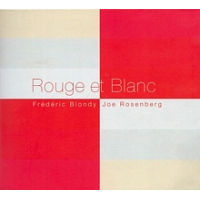


 Buy Now
Buy Now



